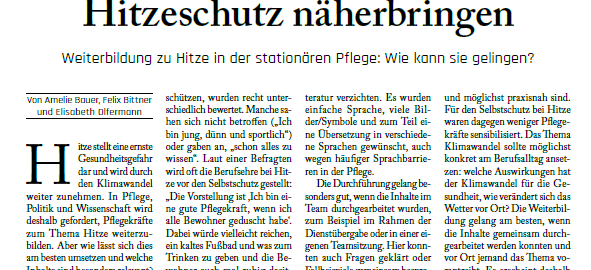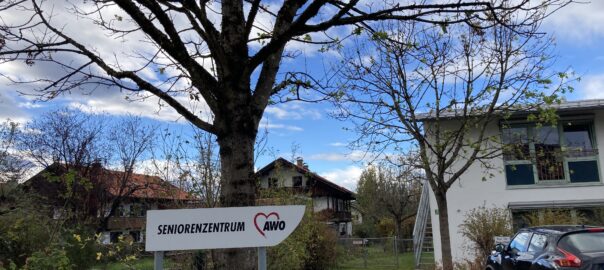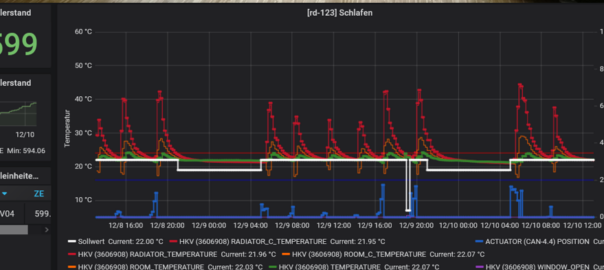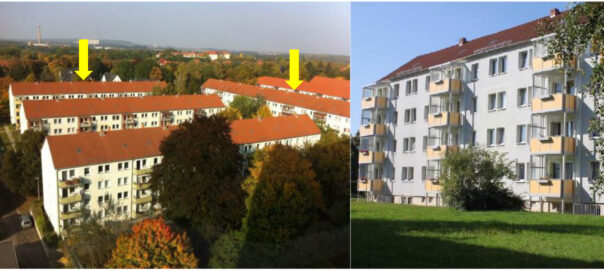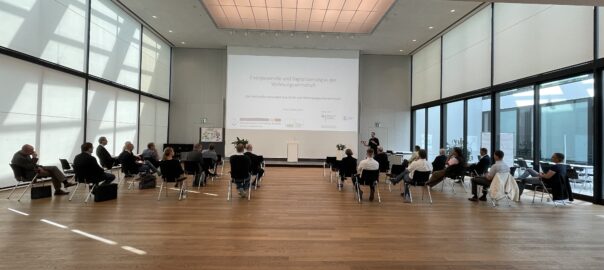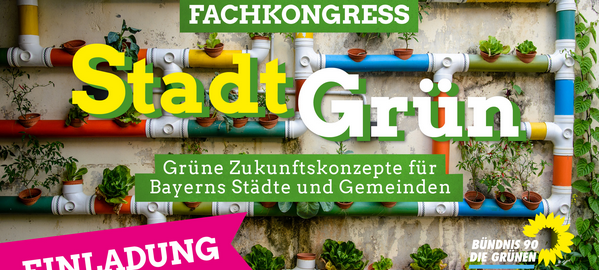Veröffentlichung: Hitzeschutz näherbringen – Weiterbildung zu Hitze in der stationären Pflege in care konkret 33/2024
Publikation: Evaluation von Weiterbildungsmaterialien zum Thema "Hitze in der Pflege" im Projekt HIGELA. Der Beitrag untersucht den Erfolg von Weiterbildungsmaterialien in stationären Pflegeeinrichtungen auf Basis von 15 Interviews mit Pflegekräften, Sozialdienst, Einrichtungs-, Wohnbereichs- und Pflegedienstleitungen sowie regionaler Leitungsebene.

